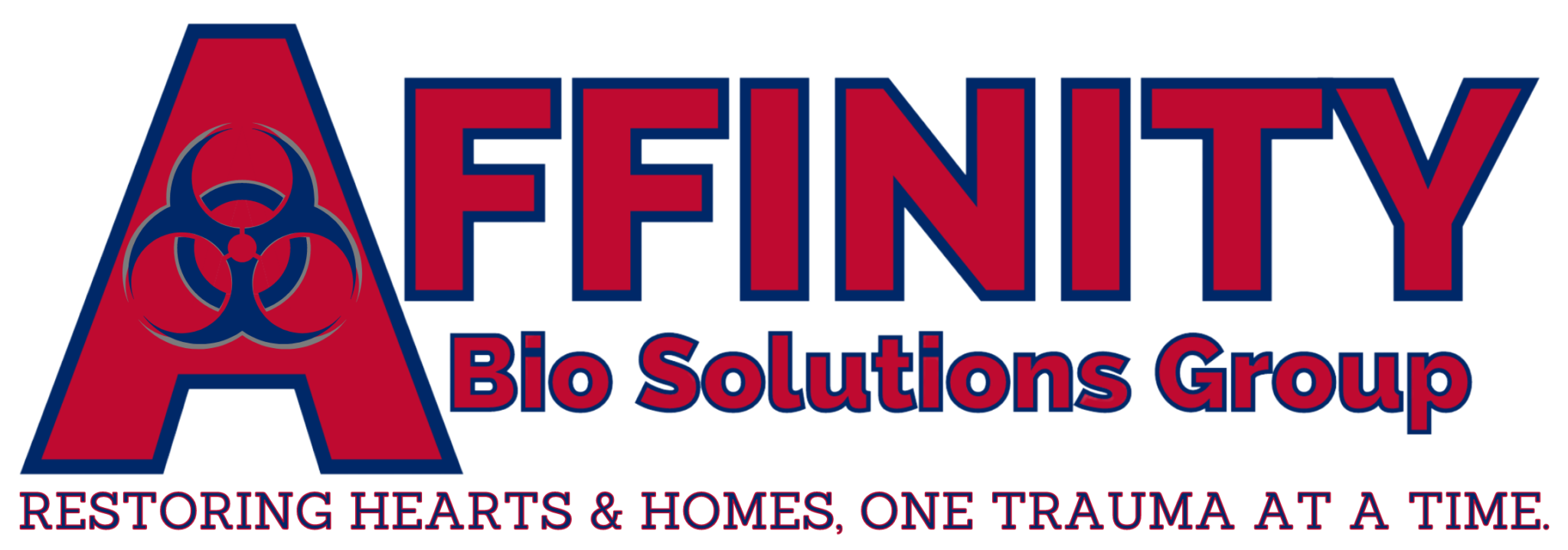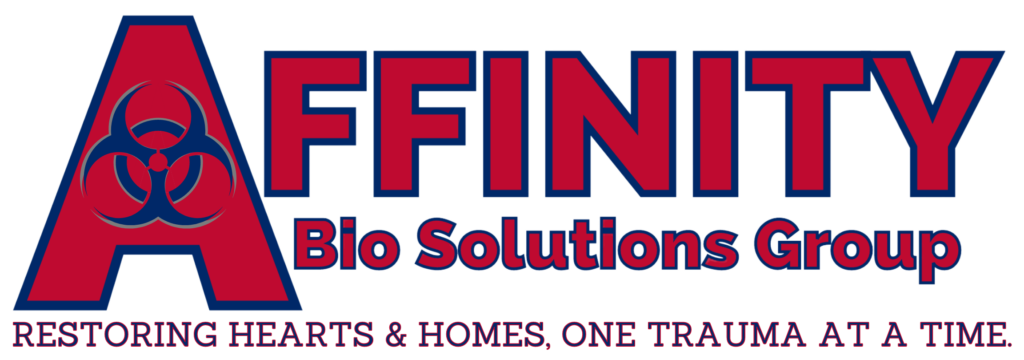What Are Bloodborne Pathogens?
Bloodborne pathogens are microscopic dangers that can significantly impact our health. They lurk in the shadows, often invisible, but their potential consequences can be severe. These hidden dangers do not just affect healthcare professionals and first responders but can affect homeowners daily; it’s crucial to understand the risks associated with these pathogens and how to protect yourself. This blog will explore the world of bloodborne pathogens, their risks, and ways to stay safe when dealing with them.
According to the Texas Health and Human Services, bloodborne pathogens are microorganisms in human blood. Some of these pathogens can carry diseases and viruses and have the potential to be transmitted from one infected person through blood and other bodily fluids entering through broken skin or mucous membranes (including mouth, nose, and eyes). The most common bloodborne pathogens include the hepatitis B virus (HBV), hepatitis C virus (HCV), and human immunodeficiency virus (HIV). These viruses can lead to severe illnesses, and in some cases, they may even be life-threatening.
Blood & Bodily Fluid Biohazard Cleanup
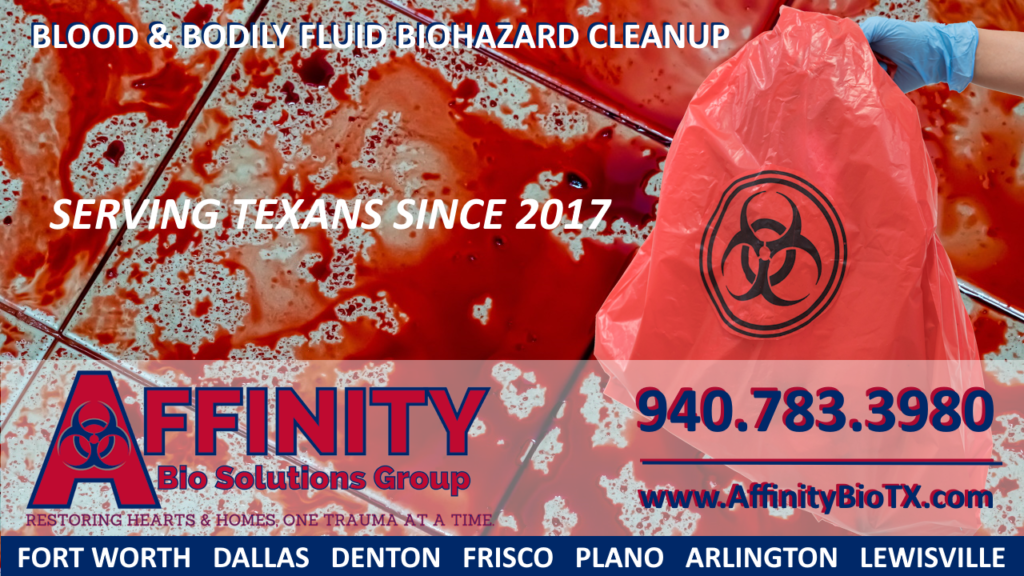
Dangers of Dealing with Bloodborne Pathogens
Infection Risk: The primary danger associated with bloodborne pathogens is the risk of infection. Exposure to infected blood or other bodily fluids can lead to the transmission of dangerous diseases. While specific careers have heightened risks of exposure to Bloodborne Pathogens, such as healthcare workers, first responders, and crime scene cleanup technicians; every community is at risk if blood and bodily fluids are not mitigated and disposed of properly.
Asymptomatic Carriers: Some individuals infected with bloodborne pathogens may not exhibit any symptoms, making identifying and isolating infected individuals challenging. This also includes infected persons unwilling to openly divulge to their friends and family that they are infected.
Extended Incubation Period: Unlike the flu or common cold symptoms, bloodborne pathogens often have an extended incubation period, which may not appear for weeks or months after exposure. This delay in symptoms can lead to delayed diagnosis and treatment, causing unknown exposure to family and friends.
Ways to Stay Safe When Dealing with Bloodborne Pathogens
Universal Precautions
The term healthcare providers most commonly use “universal precautions,” as all blood and bodily fluids must be treated as if infected. Since OSHA developed the CFR 1910.1030 standard for Bloodborne Pathogens, many companies involved in crime scene cleanup or biohazard mitigation have developed a more thorough process for workplace safety. This includes wearing personal protective equipment (PPE) like gloves, suits, and masks when handling blood, bodily fluids, or other potentially infectious materials (OPIM).
Safe Handling and Disposal
Understanding the material you are handling and how to dispose of it properly is critical to secure handling and disposal. For instance, Sharps should be stored in a puncture-resistant container labeled “medical sharps” with the international biohazard symbol. Loose blood or bodily fluids should be disposed of in a red bag labeled Regulated Medical Waste and should be disposed of per your State and local laws. Attempting to secure and dispose of sharps or medical waste improperly can harm you and your community and should only be done by a licensed company.
Post-Exposure Prophylaxis (PEP)
In the event of accidental exposure to bloodborne pathogens, seek immediate medical attention. Post-exposure prophylaxis may be available, especially for HIV exposure, which can significantly reduce the risk of infection if administered promptly.
Blood Pathogen & Biohazard Cleanup

Professional Biohazard Cleanup in Texas
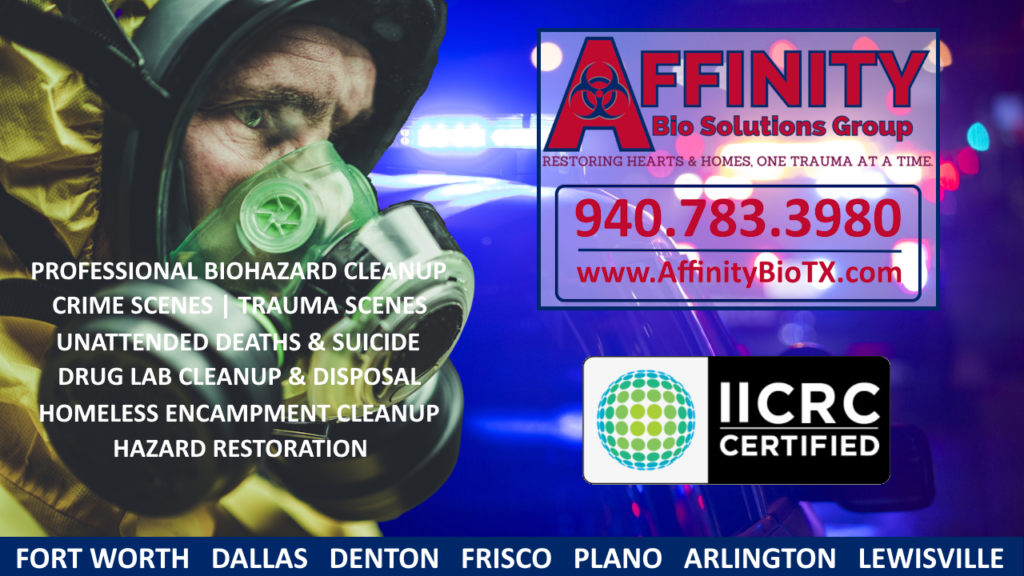
Dealing with bloodborne pathogens is dangerous; however, the risks can be significantly reduced with proper precautions, including education and training. Anyone in a high-risk profession must stay vigilant and prioritize safety when working with blood and bodily fluids. By understanding the dangers and taking appropriate steps to protect ourselves and others, we can reduce the transmission of bloodborne pathogens and ensure a safer community for all.
For Bloodborne Pathogen and Biohazard Professional Cleanup Contact Affinity Bio Solutions Group of Texas
BLOOD PATHOGEN CLEANUP | BIOHAZARD CLEANUP
If you are in need of blood pathogen cleanup, crime scene cleanup or biohazard cleanup services in the Dallas / Fort Worth DFW Area of Texas – Call our 24/7 Emergency Service Line at 817-646-9186 – for immediate assistance 24 hours a day/7 days a week.
Affinity Bio Solutions Group of Texas Provides Professional Crime Scene Cleanup and Biohazard Cleanup services in Dallas, Fort Worth, Denton, Arlington, Frisco, Plano, Lewisville, McKinney and Tarrant County, Denton County, Dallas County and Collins County, Texas.
We offer 24/7 Emergency Crime Scene Cleanup and Biohazard Cleanup Services in Arlington, Texas: 817-646-9186
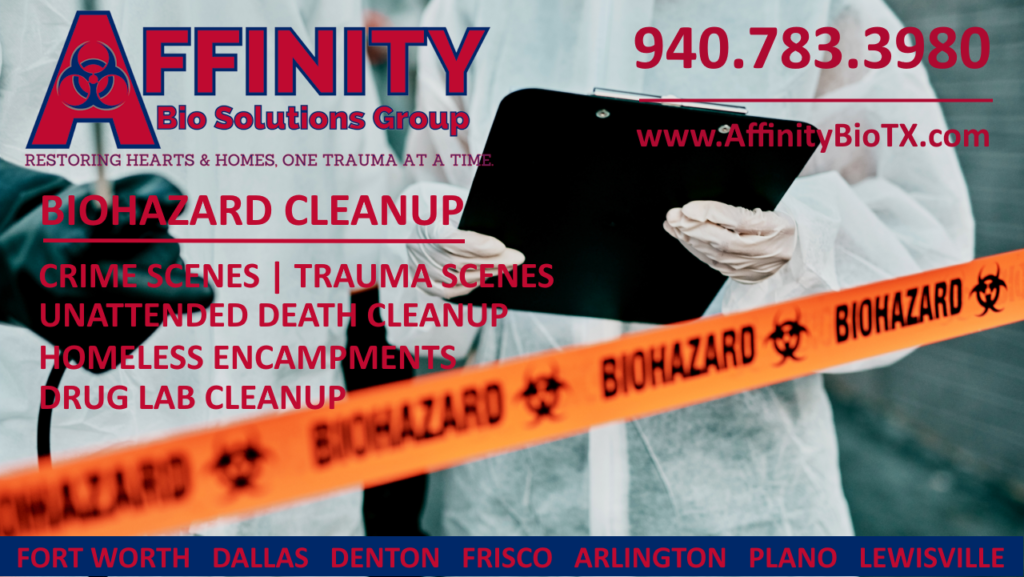
Affinity Bio Solutions Group is based out of Denton, Texas, and serves the Greater DFW – Dallas, Forth Worth Metroplex with professional biohazard cleanup services for crime scenes, trauma scenes, biohazard cleanup, crime scene cleanup, trauma scene cleanup, illegal drug lab cleanup and drug lab testing, homeless encampment cleanup, death and dead body cleanup from unattended deaths, homicides and suicides, blood and bodily fluid cleanup, and biohazard restoration.
Our DFW Texas Biohazard Cleaning, Crime Scene Cleanup, and Trauma Scene Cleanup involves certified technicians using OHSA Compliant procedures to eliminate the threat of biohazard contamination and reduce the risk of spreading harmful viruses, bacteria, and diseases. Affinity Bio Solutions Group of Texas is an approved and certified Texas biohazard cleanup company through the IICRC: Institute of Inspection Cleaning and Restoration Certification.
